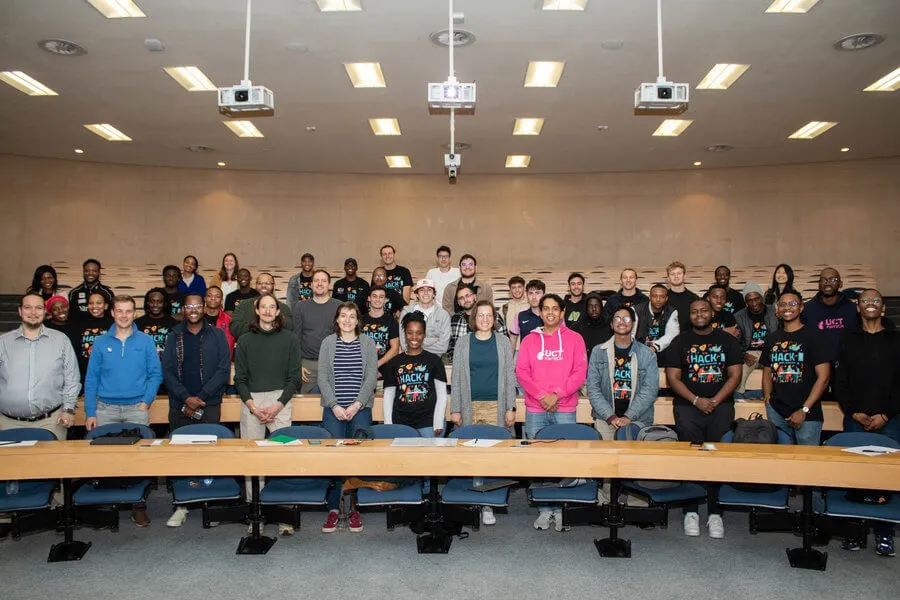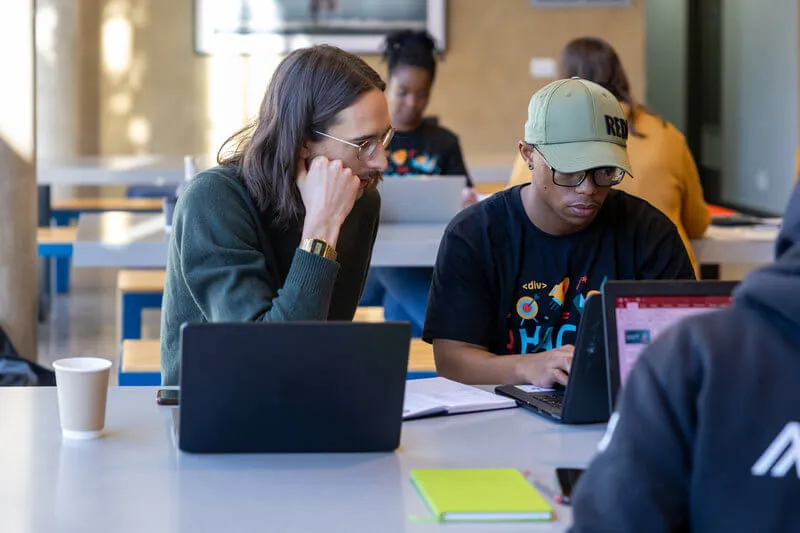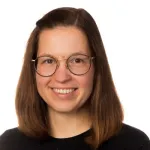
Hack @ UCT 2024: Highlights and Achievements from Our Student Bootcamp and Hackathon
Written by Sabine SchallerWe were very excited to announce our new educational grantee - the Financial Innovation Hub at the University of Cape Town (UCT), South Africa - last year at the ILP Summit 2023 in Costa Rica. Half a year has passed since then and it was time for our first event together. We hosted a week-long bootcamp on Digital Financial Inclusion and Open Payments, with a 24 hour hackathon being the grand finale of the week. Close to 40 students joined us from two South African universities and one student even came all the way from Bowie State University, USA.
The Bootcamp
Before we get into the exciting details of the hackathon and the great projects that came out of it, let's talk about the bootcamp. Our goal was to equip students with a deep understanding of payment systems and Open Payments, setting the stage for innovative hackathon projects. It was also a fantastic learning opportunity for us at the Foundation to refine how we convey the concepts of Digital Financial Inclusion and the intricacies of Open Payments.
Dr. Allan Davids, a senior lecturer in Economics at UCT, kicked off each day with inspiring lectures on payment systems, traditional banking, and the challenges these existing systems are facing. Afternoons were a collaborative effort between UCT and ILF staff, where students were introduced to Open Payments, Open Payment APIs, and the Grant Negotiation Authorization Protocol. They got hands-on experience with test wallet accounts, sending payment requests using the Open Payments SDK, and even building a donation website during the Workshop sessions with Takunda Chirema, a developer at the Financial Innovation Hub. We also showcased Web Monetization's unique micro-payment feature and walked through various potential applications of Open Payments, sparking ideas for hackathon projects.
The Hackathon

Armed with a week's worth of knowledge, the students quickly formed teams and discussed some promising ideas. The energy was palpable as ideas took shape and teams began coding. Our dedicated mentors Takunda (UCT), Sarah (ILF), and Max (ILF) guided the nine teams, who submitted impressive code and pitch decks to our panel of judges: Matt (CTO @ Fynbos), Anda (Non-academic director of the Fintech Hub, UCT), Aretha (Founder of MakeDev), Max, and Tseli (both @ ILF).
And the Winners Are…
1st Prize (35,000 ZAR): SecureLifeCover
Congratulations to Siphiwe Bogatsu, Darryl Nyamayaro, Donel Chihoma, and Jason Joannou for their innovative app, SecureLifeCover. This dynamic fintech solution helps underserved South African communities manage funeral cover payments, ensuring no payment is missed and relieving families of financial stress during difficult times.
Funerals are a significant event in black South African communities with a large turnout, often ranging from 100 to 500 people. In some cases, particularly for well-known individuals or those with large extended families, the number of attendees can be even higher. That requires substantial financial outlay. In order to be able to say goodbye to a loved one with dignity, a form of insurance policy—funeral cover—is taken and paid for by either the beneficiary or by family members. If a single payment is missed, the entire insurance may be at jeopardy.
The team of SecureLifeCover created an app that allows people to keep track of their funeral cover payments and make sure that these payments happen on time such that family members don’t have to worry about exorbitant funeral costs.
2nd Prize (20,000 ZAR): Spend Secure
Kudos to Marc Levin and Ben Cleveland for their brilliant remittance solution, Spend Secure. This platform allows senders to earmark funds for specific purposes, preventing misuse by receivers, leveraging the granularity that can be achieved with the Grant Negotiation Authorization Protocol.
Let me give you an example. Let’s say Pedro is employed in the US and wants to help out his niece Garcia to pay for her college tuition back in Mexico. However, he does not want Garcia to spend his money on anything but tuition, no shopping spree, no partying. Consequently, he gives Garcia a grant that allows her to pull money from his account to only be sent to the college’s account, without ever touching Garcia’s account.
Additionally, the team experimented with the Web Monetization extension. Quite impressive for a team of 2 and only 24 hours to complete the hack!
3rd Prize (10,000 ZAR): OpenFundsFO
Combining forces with Dr. Andrew Mangle and Corey Lee from Bowie State University, UCT students tackled the issue of delayed bursary and scholarship payments with OpenFundsFO. The team built an impressive platform that showcases student profiles and enables direct donor funding, leveraging Open Payments for fast, transparent, and cross-border transactions.
Honorable Mentions
Though not in the top three, these projects deserve a shoutout:
Naartjie: Simplifying many-to-many payments, Naartjie demonstrated how friends can directly pay retailers, suppliers, and manufacturers, bypassing complex authorization screens. They enable multiple individuals to pool their funds to make a single payment which is then distributed to various recipients.
TheHackers: This team developed a Telegram Chatbot for seamless in-app money transfers and scheduled payments, with a promising start on WhatsApp integration.
Final Words
The entire week was a resounding success! The students were engaged, asked insightful questions, and delivered outstanding hackathon projects. With such talent, we're excited for our grand pre-summit hackathon on 19-20 October, also in Cape Town, where they have a great chance of winning! I want to thank the students for making this week such a great experience for us.
A huge thank you to Dr. Allan Davids and his team for their superb organization and excellent learning materials. It’s a total success when the only thing you can complain about is the coffee at the hackathon.
We extend our thanks to the Fynbos team for their exceptional support in resolving the technical difficulties during the sign-up process to their wallet and to Matt for changing his plans and spending the Saturday with us as a judge.
Special thanks to Aretha and her team at MakeDev for organizing our T-shirts and facilitating the payout of 200 ZAR per student to their newly created Fynbos wallets. Aretha also generously agreed to serve as a judge even though she had dinner plans on Saturday evening.
Finally, I want to thank the ILF staff—Lawil, Sarah, Tseli, Max, and Alex—for being on the ground, engaging with the students and helping wherever they could! I’m looking forward to another event like this next year!

Sabine has always been interested in Data Ownership and the Internet of Value. She works on specifying and implementing open standards like the Interledger Protocol (ILP), Open Payments, and Web Monetization to allow for a Web where content can be paid for with hard currency instead of data.